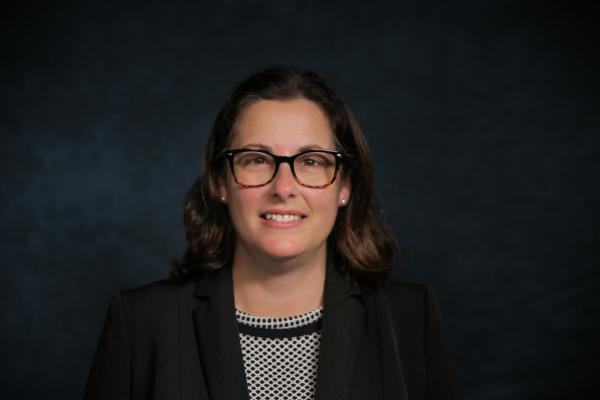Carolyn Golz, the new associate vice president for student affairs and dean of students at the University of New Orleans, has experienced university life from several angles: as a student, dorm leader and campus administrator. It was working as a resident assistant at the University of Alaska Fairbanks that helped steer Golz’s career path to student affairs.
That RA experience, in which she interacted with peers and got to know hall and campus directors who she has remained in touch with, helped to shape and formulate her vision for student affairs, Golz said. She wants all students to experience the type of positive campus life that kept her engaged and informed.
“My goal is to make this office a hub for students,” Golz said. “If you don’t know where else to go, you come here. We will break down barriers; we will get the answers you need.
“We are here to serve students, that’s why we have jobs. Students are not an interruption or a disruption, they are our job.”
Her focus for her first 90 days is getting to know students and inviting them to get to know her and the rest of the staff, said Golz, who spent her early school life in Alaska and later California while her father was in the military.
She, like many University of New Orleans students, is a first-generation college student.
As she walks the campus and attends events, Golz said she wants students to know that she and her staff are accessible.
“Letting them know that I’m not some scary person with a title, that I’m a real human being, and I really want to get to know them and I want them to get to know me and my staff,” she said.
Along the getting-to-know-her avenue: Golz is married and has two dogs, Hazel and Forest. She loves coffee, and has perfected what she calls, “The Look.” (Parents—and wise children—are familiar with similar countenances.)
It is a no-words-needed look of reproach developed as an RA while assigned to an all-male floor during her undergraduate days at the University of Alaska Fairbanks.
“You can say a lot with that look!” Golz said with a laugh.
Golz, who arrived on campus in mid-July, has 15 years of experience in student affairs, in areas that include residence life, orientation, leadership development and student conduct. She holds a doctorate in organizational leadership. Her dissertation, “The Impact of Student Engagement on Alumni Giving,” explored the relationship between student engagement and alumni giving.
“I view part of my job as creating alumni. Students now, alumni tomorrow,” Golz said. “If you don’t have a good student experience, then you’re not going to want to give back to the institution either financially or with time later. But, if you enjoy the place you feel a sense of loyalty to the place, you feel that you got something really important and transformational out of a place, you’re more likely to support it for other students in the future.”
Golz spent the previous four years at the University of California Santa Cruz, serving as the chief student affairs officer for two of its colleges. Prior to Santa Cruz, Golz was an area coordinator at the University of Illinois at Chicago, which, like the University of New Orleans, is a public metropolitan-serving institution, she said.
The University of New Orleans appealed to Golz because its mission fit with her philosophy of helping students and she liked the urban location.
“I was looking to be a dean of students, looking for the opportunity to really make a difference for students across the campus,” she said. “I wanted that urban experience again, and it was really important for me to land in a place that was really focused on serving students, so the mission of the institution was attractive the location, the position, all of that.”
So, what exactly is Golz’s job? Sure, she oversees all of student affairs, such as student conduct, counseling and health services, student involvement and leadership. However, what is the end game?
“My job really is student engagement and the student experience outside the classroom,” Golz said. “So making sure that students enjoy their time here, get connected on campus, feel a sense of belonging and are able to access the resources they need to be successful.”
Golz said she is working on the engagement game plan—trying to find a strategy that entices students to stay on campus between and after classes.
“So you’ve got to build the momentum,” Golz said. “Build the program for a few students, and then scale it up as more students start to engage, so it means providing opportunities for leadership development, providing social opportunities, creating spaces where students can just be between classes so they are not just hanging out in their cars.”





